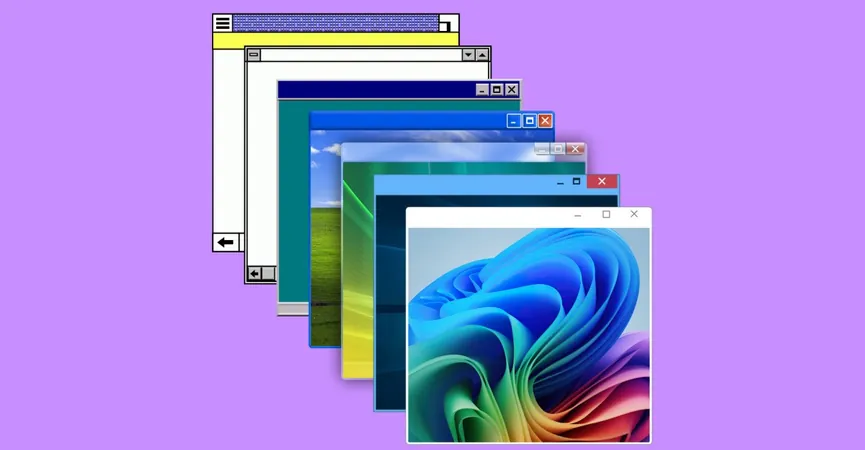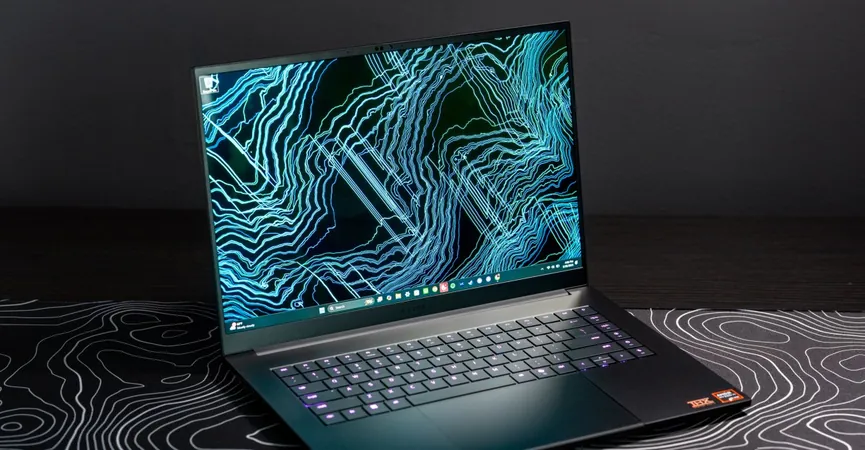
Celebrating 50 Years of Microsoft: A Journey Through Innovation and Adaptation
2025-04-04
Author: Ken Lee
As Microsoft marks its 50th anniversary, it’s essential to reflect on its evolution from a small startup to a global tech giant. Founded in 1975 by Bill Gates and Paul Allen as Micro-Soft, the company initially carved its niche with the development of Altair BASIC, a programming language for the Altair 8800. This early success was just the beginning of a journey filled with groundbreaking innovations and significant challenges.
By 2005, however, Microsoft found itself at a crossroads, facing warnings from its lead software architect, Ray Ozzie. He cautioned the leadership about a looming threat: the rise of advertising-supported services that could undermine traditional software sales models. Despite popular products like Windows and Office, the company needed to adapt quickly to the shifting landscape of web-based applications and cloud computing. Ozzie’s memo urged Microsoft to embrace the digital future, a bold step that was not initially welcomed by all.
In those pivotal years, Google’s entry into the productivity space with Google Docs signified a shift in how software could be delivered and monetized. Despite internal dissent about moving Office to the cloud, former CEO Steve Ballmer made the tough decision to launch Office 365 and Azure, marking a drastic change for the company that was built on software sold in boxes. The transition had its hurdles; as Rajesh Jha, Microsoft’s executive vice president, recalls, “The early days of Office 365 were rough,” emphasizing the complexities of reshaping applications for the cloud.
Fast forward to today, and we see how Microsoft has not only survived but thrived through various cycles of innovation, failure, and rebirth. The company has embraced change at every turn, a trait that Steven Bathiche, head of Microsoft’s Applied Sciences Group, believes is critical for longevity in such a fast-paced industry. The launch of Windows 8 and the Zune, as well as the company's misadventure in the smartphone market, are seen not just as failures but as invaluable lessons that have influenced Microsoft’s direction.
Recent efforts under CEO Satya Nadella have cemented Microsoft’s commitment to leading in artificial intelligence, a shift highlighted by significant investments in OpenAI. Starting with a $1 billion investment in 2019, Microsoft expanded its partnership in 2023 with an additional $10 billion after the launch of ChatGPT, establishing itself as a major player in the burgeoning AI landscape. Microsoft’s advancements in AI are set to revolutionize how users interact with technology, potentially leading to the development of personalized software that can adapt uniquely to each individual.
Looking ahead, Microsoft’s ambition to create AI agents that function as digital colleagues hints at a future where technology seamlessly integrates into our daily lives. Innovations such as the Muse AI model, designed for Xbox game development, showcase the company's commitment to merging AI with consumer experiences, while plans for robotics and quantum computing indicate a thirst for pioneering new frontiers.
Despite setbacks in the mobile arena and the challenging landscape of modern technology, Microsoft’s ability to pivot and adapt has fueled its success over the last five decades. As we celebrate this landmark anniversary, one thing is clear: Microsoft’s journey is far from over, and its relentless pursuit of innovation will continue to shape the future of technology. With AI at the helm, who knows what groundbreaking advancements lie ahead in Microsoft's next chapter? Buckle up for a thrilling ride into the future.




 Brasil (PT)
Brasil (PT)
 Canada (EN)
Canada (EN)
 Chile (ES)
Chile (ES)
 Česko (CS)
Česko (CS)
 대한민국 (KO)
대한민국 (KO)
 España (ES)
España (ES)
 France (FR)
France (FR)
 Hong Kong (EN)
Hong Kong (EN)
 Italia (IT)
Italia (IT)
 日本 (JA)
日本 (JA)
 Magyarország (HU)
Magyarország (HU)
 Norge (NO)
Norge (NO)
 Polska (PL)
Polska (PL)
 Schweiz (DE)
Schweiz (DE)
 Singapore (EN)
Singapore (EN)
 Sverige (SV)
Sverige (SV)
 Suomi (FI)
Suomi (FI)
 Türkiye (TR)
Türkiye (TR)
 الإمارات العربية المتحدة (AR)
الإمارات العربية المتحدة (AR)